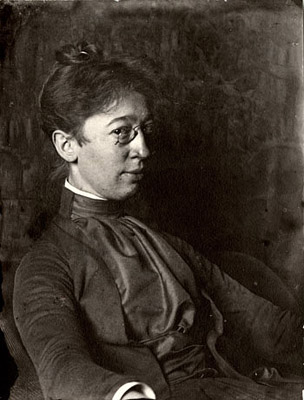Deerfield's Progressive Impulse
That "band of industrious and brainy women"
Myriad Interests
Other Deerfield artisans put their energies into other interests. Annie Putnam, for instance, attempted to convince the Arts and Crafts Society Boston's jury of the importance of free expression in the arts.
Margaret Whiting was unyielding in her belief that success in the Arts and Crafts could only be achieved through aesthetic excellence. Today, looking back through a 21st century lens, we might argue that women like Margaret Whiting and Madeline Yale Wynne were protofeminists, but that would oversimplify them. In 1913, 53 year old Margaret Whiting reflected upon life in a letter to a friend. This is what she wrote:
"As I see this universe, I find each form of character which honestly tries to perform its duty to its neighbors has its own valuable part in the sum of the whole. And so, though I am not a reformer nor a socialist nor a strong suffragist nor anything completely, only a believer in the motive and generosities that lie at the bottom of all similar movements, though I am none of these things, I am at peace with all of those who are, and I demand from them the same respect and toleration for my position,- for I know I have my place in the Universe as well as they have theirs, and my temperament is as valuable as any other."
It is likely that Madeline Yale Wynne would have agreed with the tenor, if not the totality, of Whiting's thoughts here.
- Margaret C Whiting, Deerfield, to "My dear Nancy" [Nancy, or Annie Balch, was Emily's sister], March 2, 1913. Papers of Emily Greene Balch, 1875-1961, Swarthmore College Peace Collection, Scholarly Resources microfilm edition, SCPC Reel 129.5.
 In Their Words
In Their Words

© Memorial Hall Museum, Pocumtuck Valley Memorial Association
Margaret Whiting
Margaret Whiting, by Frances and Mary Allen, c. 1888























